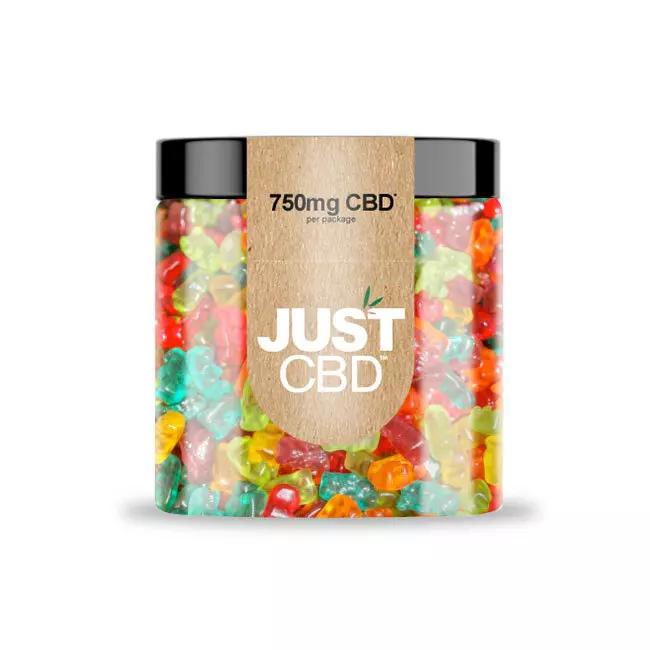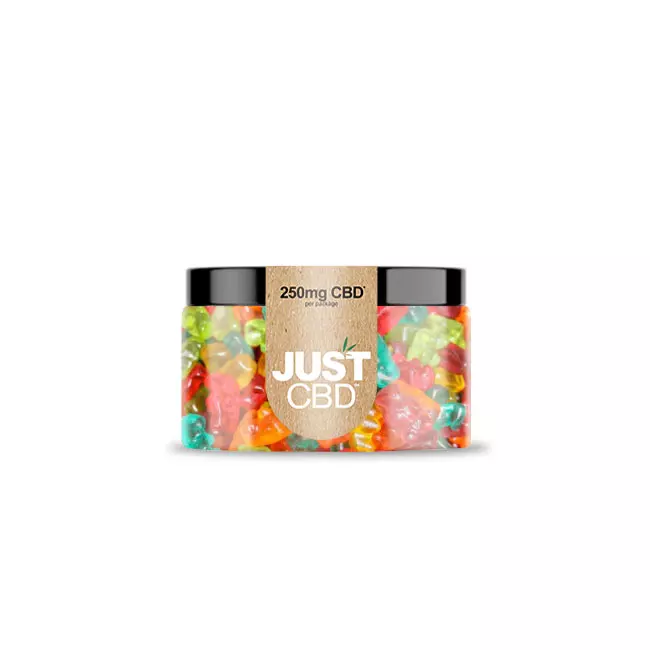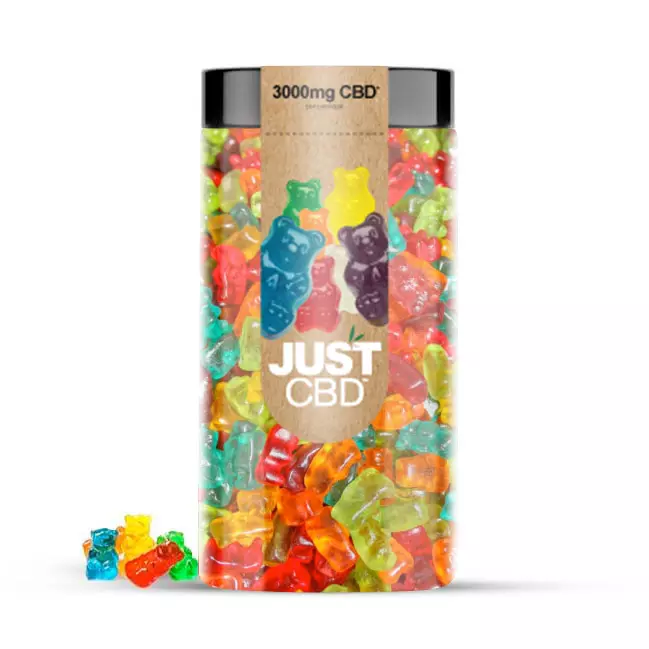CBD and the Endocannabinoid System
CBD, short for cannabidiol, has gained significant popularity in recent years as a natural remedy for various ailments, including muscle pain. Its effectiveness stems from its interaction with the body’s endocannabinoid system (ECS), a complex network of receptors and neurotransmitters responsible for regulating a wide range of physiological processes, including inflammation, pain perception, and muscle recovery.
What is the Endocannabinoid System?
The endocannabinoid system (ECS) is a crucial regulatory system found in humans and other mammals. It consists of specialized cell receptors called cannabinoid receptors (CB1 and CB2), which are located throughout the body, including the brain, immune cells, and muscles. These receptors interact with naturally occurring compounds called endocannabinoids, produced by the body itself. Endocannabinoids bind to these receptors, triggering a cascade of effects that help maintain homeostasis, or balance, in various bodily functions.
How CBD Interacts with the ECS
CBD, short for cannabidiol, has gained significant popularity in recent years as a natural remedy for various ailments, including muscle pain. Its effectiveness stems from its interaction with the body’s endocannabinoid system (ECS), a complex network of receptors and neurotransmitters responsible for regulating a wide range of physiological processes, including inflammation, pain perception, and muscle recovery.
The endocannabinoid system (ECS) is a crucial regulatory system found in humans and other mammals. It consists of specialized cell receptors called cannabinoid receptors (CB1 and CB2), which are located throughout the body, including the brain, immune cells, and muscles. These receptors interact with naturally occurring compounds called endocannabinoids, produced by the body itself. Endocannabinoids bind to these receptors, triggering a cascade of effects that help maintain homeostasis, or balance, in various bodily functions.

While CBD does not directly bind to CB1 or CB2 receptors like THC (the psychoactive component in marijuana), it exerts its effects by interacting with other systems within the ECS. One way it does this is by modulating the production and breakdown of endocannabinoids, thus influencing their activity levels.
- Indirect Modulation of Receptors: CBD can indirectly influence the activity of CB1 and CB2 receptors by impacting signaling pathways that regulate receptor expression and function.
- Anti-Inflammatory Effects: CBD possesses potent anti-inflammatory properties, which may contribute to its pain-relieving effects. It is believed to suppress the production of inflammatory molecules like cytokines, which play a role in muscle soreness and inflammation.
Mechanisms of Muscle Pain Relief
Muscle soreness after workouts is a common experience, but there are natural ways to alleviate the discomfort. CBD, short for cannabidiol, has emerged as a popular option for post-workout muscle pain relief. This is due to its ability to interact with the body’s endocannabinoid system (ECS), a complex network involved in regulating inflammation, pain perception, and muscle recovery.
Inflammation Reduction
CBD works by indirectly influencing the activity of cannabinoid receptors CB1 and CB2. It doesn’t directly bind to these receptors like THC, but instead modulates the production and breakdown of endocannabinoids, which are naturally occurring compounds that bind to these receptors. This modulation influences the ECS’s role in pain perception and inflammation.
CBD also possesses potent anti-inflammatory properties. It is believed to suppress the production of inflammatory molecules like cytokines, which contribute to muscle soreness and inflammation after workouts. By reducing inflammation, CBD can help alleviate muscle pain and promote faster recovery.
Neurotransmitter Modulation
Neurotransmitters play a crucial role in transmitting pain signals throughout the body. When muscles are injured or overexerted, they release inflammatory chemicals that activate nerve endings, sending pain messages to the brain.
CBD’s interaction with the ECS can indirectly influence neurotransmitter activity. While it doesn’t directly bind to receptors for neurotransmitters like serotonin, dopamine, or glutamate, its effects on endocannabinoid levels can modulate their release and signaling.
This modulation can lead to a reduction in pain perception by influencing how the brain processes pain signals. Additionally, CBD’s anti-inflammatory properties can indirectly reduce nerve inflammation, further contributing to pain relief.
Muscle Recovery Enhancement
CBD works by interacting with the body’s endocannabinoid system (ECS), a complex network of receptors and neurotransmitters responsible for regulating various physiological processes, including inflammation, pain perception, and muscle recovery. While CBD doesn’t directly bind to CB1 or CB2 receptors like THC, it influences their activity indirectly by modulating the production and breakdown of endocannabinoids.
This modulation helps regulate the ECS’s role in pain perception and inflammation. Additionally, CBD exhibits potent anti-inflammatory effects, believed to work by suppressing the production of inflammatory molecules called cytokines. These cytokines contribute to muscle soreness and inflammation after workouts, so reducing their activity can alleviate pain and promote faster recovery.
Neurotransmitters are crucial for transmitting pain signals throughout the body. During exercise or injury, muscles release inflammatory chemicals that activate nerve endings, sending pain messages to the brain. CBD’s interaction with the ECS indirectly influences neurotransmitter activity by modulating their release and signaling, even though it doesn’t directly bind to receptors for neurotransmitters like serotonin, dopamine, or glutamate.
This modulation can lead to reduced pain perception by influencing how the brain processes pain signals. Furthermore, CBD’s anti-inflammatory properties indirectly reduce nerve inflammation, further contributing to pain relief.
Absorption and Bioavailability
Understanding how CBD works in the body is crucial for comprehending its potential benefits. Absorption and bioavailability are key factors determining how effectively CBD can interact with the endocannabinoid system (ECS) and ultimately alleviate muscle pain.
Oral Consumption of Gummies
Absorption refers to the process by which CBD enters the bloodstream from the site of administration. Oral consumption, like taking CBD gummies, involves absorption primarily through the digestive system. When you eat a CBD gummy, it begins its journey in the stomach and then moves into the small intestine, where most nutrient and drug absorption takes place.
However, the digestive process can significantly affect how much CBD actually reaches the bloodstream. Factors such as the formulation of the gummy (presence of fats or oils), the individual’s gut microbiome, and even food consumption can influence absorption rates.
Bioavailability describes the proportion of ingested CBD that enters the systemic circulation and becomes available to interact with the ECS. Oral ingestion generally has lower bioavailability compared to other methods like vaping or sublingual administration. This is because the digestive system breaks down some of the CBD during its journey, reducing the amount that ultimately reaches the bloodstream.

Factors Affecting Absorption

Several factors can influence the absorption and bioavailability of CBD, impacting its effectiveness in relieving muscle pain. The way CBD is consumed plays a crucial role. Oral ingestion, like taking CBD gummies, involves absorption through the digestive system, which can be variable and less efficient than other methods.
The formulation of the CBD product also matters. For example, CBD combined with fats or oils may be absorbed more readily than CBD alone. Individual factors such as gut health and metabolism can also impact how well the body absorbs CBD.
Another key factor is the presence of food in the stomach. Eating a meal high in fat can actually enhance CBD absorption, while consuming grapefruit or grapefruit juice can inhibit it due to interactions with enzymes involved in digestion.
Potential Benefits and Considerations
While CBD holds promise for post-workout muscle pain relief due to its interaction with the endocannabinoid system (ECS), understanding the potential benefits and considerations is crucial. CBD’s ability to modulate endocannabinoid activity, coupled with its anti-inflammatory properties, suggests a mechanism for reducing pain and promoting recovery. However, factors like absorption rate, bioavailability, and individual variations can influence the effectiveness of CBD in alleviating muscle soreness.
Pain Management Efficacy
Potential benefits of using CBD gummies for post-workout muscle pain include reduced inflammation, alleviated pain perception, and faster muscle recovery. CBD’s interaction with the endocannabinoid system (ECS) is thought to play a key role in these effects. By modulating the activity of receptors involved in pain signaling and inflammation, CBD may help reduce discomfort and promote healing.
However, it is important to consider potential considerations such as dosage, individual tolerance, and possible interactions with other medications. Consulting with a healthcare professional before incorporating CBD into your routine is always recommended, especially if you have any underlying health conditions or are taking other medications.
The pain-management efficacy of CBD gummies can vary depending on factors like the individual’s physiology, the severity of muscle soreness, and the specific formulation of the product.
More research is needed to fully understand the optimal dosage, long-term effects, and potential side effects of CBD for muscle pain relief.
Possible Side Effects
CBD gummies offer a convenient way to incorporate CBD into one’s routine, but it is essential to be aware of their potential benefits and considerations.
- Potential Benefits
- Reduced Inflammation: CBD possesses potent anti-inflammatory properties that may help reduce muscle soreness and swelling after workouts.
- Alleviated Pain Perception: By interacting with the endocannabinoid system, CBD can indirectly modulate pain signals, leading to a decrease in perceived pain.
- Faster Muscle Recovery: By reducing inflammation and promoting relaxation, CBD may contribute to faster muscle recovery after strenuous exercise.
- Considerations
- Dosage: Determining the optimal CBD dosage for muscle pain relief can be individualistic and requires careful consideration. It is important to start with a low dose and gradually increase it until desired effects are achieved, while monitoring for any adverse reactions.
- Individual Tolerance: Individuals may respond differently to CBD due to variations in their endocannabinoid system, metabolism, and other factors.
- Drug Interactions: CBD can interact with certain medications. It is crucial to consult with a healthcare professional to ensure that CBD use is safe and appropriate given any existing medical conditions or medications being taken.
- Possible Side Effects
- Drowsiness: Some individuals may experience drowsiness as a side effect of CBD.
- Dry Mouth: CBD can have a drying effect on the mouth.
- Diarrhea: Gastrointestinal issues like diarrhea can occur, particularly at higher doses.
- Potential Benefits
- Reduced Inflammation: CBD possesses potent anti-inflammatory properties that may help reduce muscle soreness and swelling after workouts.
- Alleviated Pain Perception: By interacting with the endocannabinoid system, CBD can indirectly modulate pain signals, leading to a decrease in perceived pain.
- Faster Muscle Recovery: By reducing inflammation and promoting relaxation, CBD may contribute to faster muscle recovery after strenuous exercise.
- Considerations
- Dosage: Determining the optimal CBD dosage for muscle pain relief can be individualistic and requires careful consideration. It is important to start with a low dose and gradually increase it until desired effects are achieved, while monitoring for any adverse reactions.
- Individual Tolerance: Individuals may respond differently to CBD due to variations in their endocannabinoid system, metabolism, and other factors.
- Drug Interactions: CBD can interact with certain medications. It is crucial to consult with a healthcare professional to ensure that CBD use is safe and appropriate given any existing medical conditions or medications being taken.
- Possible Side Effects
- Drowsiness: Some individuals may experience drowsiness as a side effect of CBD.
- Dry Mouth: CBD can have a drying effect on the mouth.
- Diarrhea: Gastrointestinal issues like diarrhea can occur, particularly at higher doses.
Dosage and Frequency Guidelines
CBD gummies offer a convenient way to incorporate CBD into one’s routine, but it is essential to be aware of their potential benefits and considerations.
Dosage and frequency guidelines for CBD gummies for post-workout muscle pain relief vary depending on individual factors such as weight, tolerance, and the severity of discomfort. A common starting dose is around 10-25mg of CBD taken 30-60 minutes before or after a workout.
It’s crucial to monitor how your body responds to CBD and adjust the dosage accordingly. If you don’t experience noticeable relief, you can gradually increase the dose up to 50mg per serving, but avoid exceeding recommended limits without consulting with a healthcare professional.
Frequency of use also depends on individual needs. Some individuals may benefit from taking CBD gummies daily for ongoing muscle pain management, while others may only need them occasionally after strenuous workouts.
CBD Gummies for a balanced mind
Shop JustCBD’s cannabidiol infused gummies now
Kahh Spence Beauty
Lumispa Face Care
- Nefertiti Neck Lift Treatment Near East Horsley, Surrey - October 18, 2025
- NCTF 135 HA Near Titsey, Surrey - October 15, 2025
- Metamours In Polyamory: Understanding Your Partner’s Other Relationships - October 14, 2025
